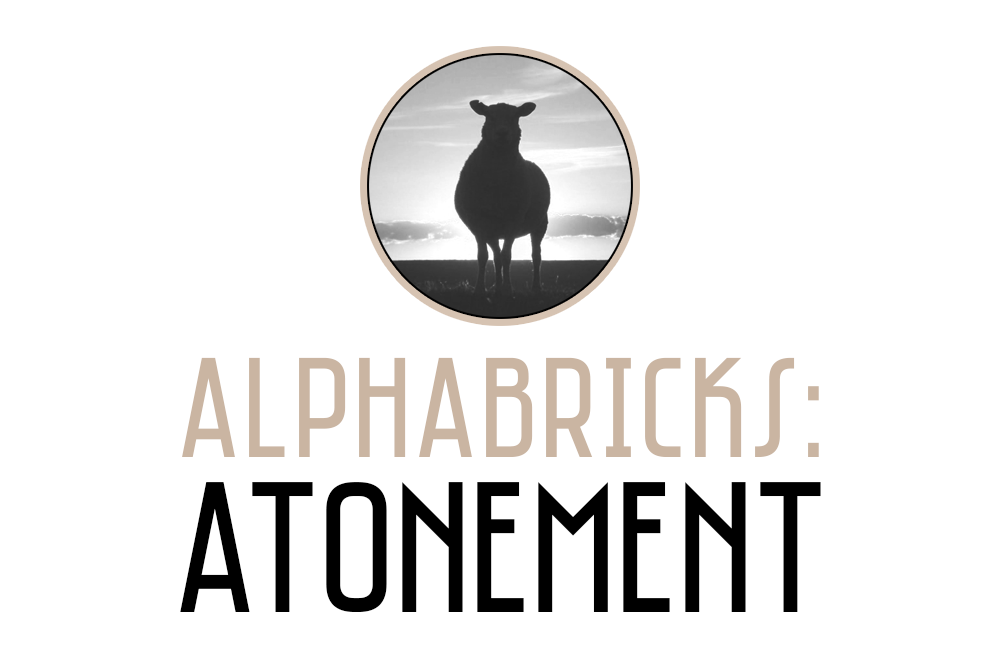Snap Shot
The word atonement only occurs in the Authorized Version of the New Testament in Romans 5:11; in most other translations the word generally used is reconciliation. In the Old Testament atonement is of frequent occurrence regardless of translation.
The meaning of the word is simply at-one-ment, i.e., the state of being at one or being reconciled; thus, atonement is reconciliation and it is used to denote the effect which flows from the death of Christ (Easton 1897). That is, when one is born-again through Christ’s death on the cross they are at-one with God the Father.
Backdrop
As stated, atonement appears many times in the Old Testament (80 times is 69 verses); however, it must be noted that the Hebrew word kaphar (kaw-far’) from which atonement is translated appears an additional 22 times in some 25 other verses. Regardless how kaphar is translated, the primitive definition is to cover; figuratively it means to expiate or condone, to placate or cancel.
From Adam and Eve’s disobedience in the Garden of Eden, mankind has been separated from God by sin. Atonement is one word used to define the action that brought man back into a right relationship with God; thus, through ‘an action’ man’s sins can be ‘covered and canceled’ which results in being at-one with God.
Old Testament Usage
Atonement is first seen in Exodus 29 when Moses was instructed how to consecrate Aaron and his sons for the priestly office and, ultimately, for the purpose of covering Israel’s sin in reconciling them to God. Specifically, it is seen in the Day of Atonement outlined in Leviticus 16.
Speaking summarily, the Day of Atonement was when the High Priest would annually, always on the same day and month each year, make atonement for the sins of Israel by the shedding of a bullock’s blood. Once the God-given ritual was completed Israel’s sin was covered for another year until the next Day of Atonement.
Fundamentally, there are a few things to understand about atonement as seen in the Day of Atonement:
1. Israel’s sin is in constant need of covering;
2. The means for that covering is outside of itself, that is, it cannot be accomplished on its own;
3. Atonement could only be accomplished by obedience to the command of God and through another’s death.
This basic understanding of Israel’s Day of Atonement initiated centuries ago is very helpful in comprehending the atonement that can be experienced today.
New Testament
While the Old Testament is the inspired Word of God we pattern our life and then live by the New Testament:
“For whatsoever things were written aforetime were written for our learning, that we through patience and comfort of the scriptures might have hope” (Romans 15:4 KJV).
Not that the instruction for Christians was the “only” purpose of Old Testament; rather, that all the Old Testament might be useful “now” in illustrating and enforcing the doctrines and duties of piety toward God and man (Barnes 1870).
With the instruction of the Old Testament’s Day of Atonement, we can better understand generally the Atonement of Christ as penned by Paul,
“And not only so, but we also joy in God through our Lord Jesus Christ, by whom we have now received the atonement” (Romans 5:11 KJV);
and specifically,
“But in those sacrifices there is a remembrance again made of sins every year. For it is not possible that the blood of bulls and of goats should take away sins…And every priest standeth daily ministering and offering oftentimes the same sacrifices, which can never take away sins: But this man, after he had offered one sacrifice for sins for ever, sat down on the right hand of God” (Hebrews 10:3-4; 11-12 KJV).
Application
In recalling the fundamental aspects of Israel’s Day of Atonement and in order to apply the New Testament’s meaning of Atonement for anyone today, the following chart is offered.
Old Testament Atonement | New Testament Atonement |
Israel’s sin is in constant need of covering | Man’s sin is in constant need of covering, but in Christ is covered and cancelled once and for all |
The means for that covering is outside of itself; that is, it cannot be accomplished on its own | There is nothing that Man can do to save himself, it can only be accomplished through the sacrifice of another |
Atonement could only be accomplished by obedience to the command of God and through another’s death | If one confesses their sin, accepts Christ as their Savior by faith (as instructed by the Lord) atonement is experienced. |
Conclusion
Atonement today is accomplished only through Christ, and through Him man can be reconciled to God:
“For Christ also hath once suffered for sins, the just for the unjust, that he might bring us to God, being put to death in the flesh, but quickened by the Spirit” (1 Peter 3:18 KJV).



